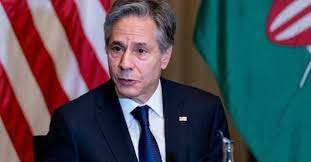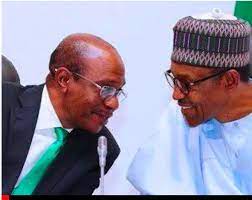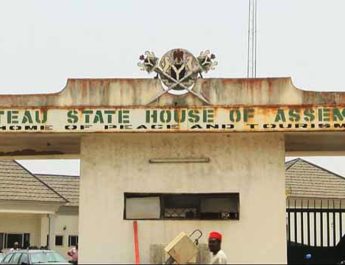United States Secretary of State, Antony Blinken, has praised President Bola Tinubu for his effective leadership within the Economic Community of West African States (ECOWAS), particularly in efforts to restore constitutional order in Niger Republic.
The highest-ranking US official stated that he had a conversation with the President of Nigeria via telephone, during which they deliberated on their collaborative endeavors to reinstate President Mohamed Bazoum.
I engaged in a dialogue with Nigerian President Tinubu, expressing my admiration for his stewardship of the Economic Community of West African States. Our conversation revolved around our joint initiatives aimed at reestablishing constitutional normalcy in Niger.
Bazoum, whose 2021 election marked a significant turning point in the country’s tumultuous history, was ousted on July 26 by members of his own presidential guard.
This sudden upheaval sent shockwaves across West Africa, resonating particularly with Mali and Burkina Faso. These nations, similarly plagued by jihadist insurgencies, have also witnessed military interventions.
In an effort to halt the unfolding chain of events, ECOWAS imposed sanctions on Niger and recently authorized the mobilization of a “standby force to reinstate constitutional order.”
However, significant uncertainties surround the prospects of this intervention, ranging from logistical viability to internal disagreements within ECOWAS. The regional bloc also emphasizes its preference for a peaceful resolution.
On July 30, a seven-day ultimatum was issued, demanding the restoration of Bazoum or warning of potential use of force. Yet, as the deadline lapsed, the regime’s responses have been contradictory, adding to the complexity of the crisis now entering its third week.
Over the weekend, the leaders of the coup conveyed their willingness to engage in diplomatic efforts following a meeting between their chief, General Abdourahamane Tiani, and Nigerian religious mediators.
These discussions transpired subsequent to the postponement of a scheduled gathering of ECOWAS military chiefs in Ghana, attributed to “technical reasons.”
However, on Sunday night, the rulers of Niger announced that they had amassed substantial evidence to bring forth charges of “high treason and undermining internal and external security” against Bazoum.
This proclamation elicited a strong rebuke from ECOWAS, which vehemently condemned the threat.
In an official statement, the bloc expressed its astonishment upon learning of these threats, stating that they stand in stark contrast to the reported commitment of the regime to restore constitutional order through peaceful means.
Bazoum, aged 63, along with his family, has been held in custody at the presidential residence since the coup, leading to growing international concern over his detention conditions.
On Monday, Ali Mahaman Lamine Zeine, the military-appointed prime minister and a civilian, declared Niger’s determination to resist ECOWAS’s sanctions threat.
“We believe that despite this unjust challenge that has been thrust upon us, we possess the resilience to surmount it. Indeed, we shall prevail,” he asserted in an interview with German broadcaster Deutsche Welle.
The bloc has taken measures such as severing financial transactions and electricity supplies, as well as closing borders with landlocked Niger, thereby obstructing crucial imports to one of the world’s most impoverished nations.




